The Cold Facts of Winter Tires
Winter can come on fast, and with winter comes cold roads and ugly road conditions. Ice and snow can make driving miserable. While there are more opportunities to work from home these days and avoid the commute, there are still plenty of jobs that can’t avoid making the morning drive in inclement weather. Not to mention, there are plenty of circumstances where you may have to venture out onto rough roads.
All-wheel and four-wheel drive vehicles help out in poor conditions, but they aren’t the answer all on their own. Even if all four wheels are getting power, they still need grip. That’s where your tires come in, and specifically in the wintertime, where winter tires can make a big difference.
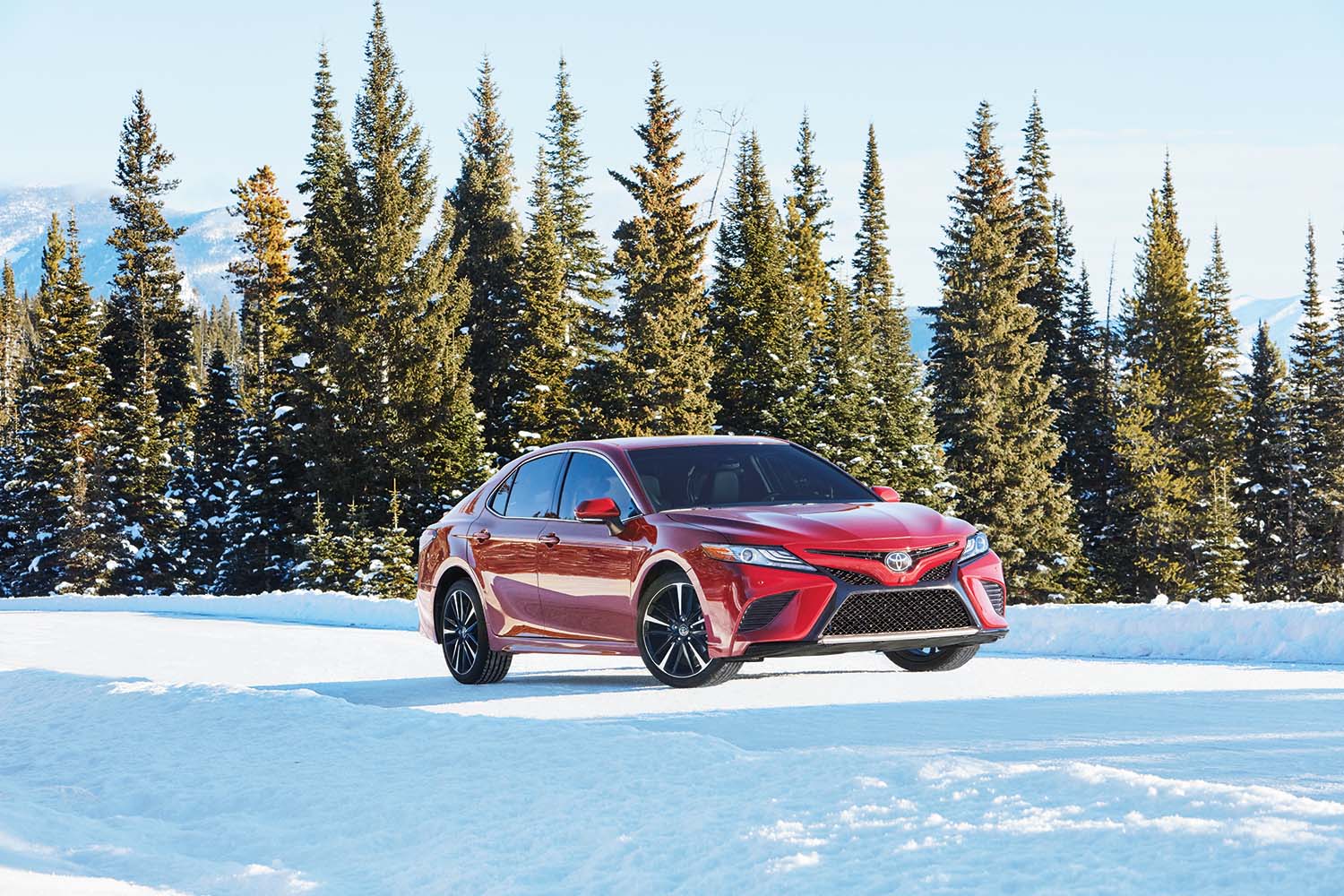
The Different Types of Tires
To understand winter tires better, you have to look at the tires out there that are available. They can be separated into three different groups – performance tires (sometimes called summer tires), all-season tires, and winter tires.
Performance – or summer – tires do exactly what their name says, in that they provide exceptional performance, particularly in the summertime. With shallow grooves, a solid center rib, and an asymmetrical tread pattern, these make sure that as much rubber meets the road as possible, for more stability during cornering, better braking, and quicker acceleration. They are made of a tread blend that is soft and features sticky additives.
All-season tires have deep grooves with a symmetrical tread pattern and are made of a compound that stays flexible and grippy year-round. They are capable of handling minor weather changes, thanks to those deep treads and grooves that help to funnel away rain, light sleet, and snow.
Winter tires use a rubber compound that’s designed to remain flexible even as temperatures drop to well below freezing. The tread patterns are unique, and the tread depth is deeper overall. Winter tires also include many more biting edges across the tread and the outside edges of the tires as well.
Do Winter Tires Actually Make a Difference?
Absolutely.
Summer tires lose their performance capabilities as the roads cool down and the tread compound stiffens. Coupled with the relatively slick driving surface, this causes them to lose grips.
All-season tires do offer more control in the cold winter months, as the compound is generally unaffected by lower temperatures. The tread variations allow for better grip, while the deeper treads can push some slush and snow out of the way.
However, winter tires take this and turn it up a notch. The tread compound in winter tires is made specifically to deal with freezing temperatures and remains flexible well below freezing. The treads are even deeper and have a more erratic and sharper pattern than the all-season tires, to channel snow and slush. Finally, those hundreds of biting edges allow the tires to dig into the snow and even bite into ice to prevent slippage! Winter tires can even make it so that high-performance sports cars can keep their performance up, even under snowy conditions.
Are There Any Cons of Winter Tires?
Winter tires are super effective when there is snow and ice on the roads. However, there are definitely some cons to winter tires. When the roads are fine, and are fairly warm, the rubber compound will wear down at an accelerated rate. Running winter tires outside of the extremely cold months is just throwing money down the drain. They’re also tough on the roads – the deep biting treads will do the same thing to smooth asphalt as they do to smooth ice, and wear down the roads. Finally, they don’t offer great handling. While all-season tires don’t handle as well as summer tires, winter tires don’t even come close to the handling abilities of all-season tires. Don’t plan on fast maneuvering and a smooth ride. You’ll get through the ice and snow, but you won’t have the control you’re used to having.
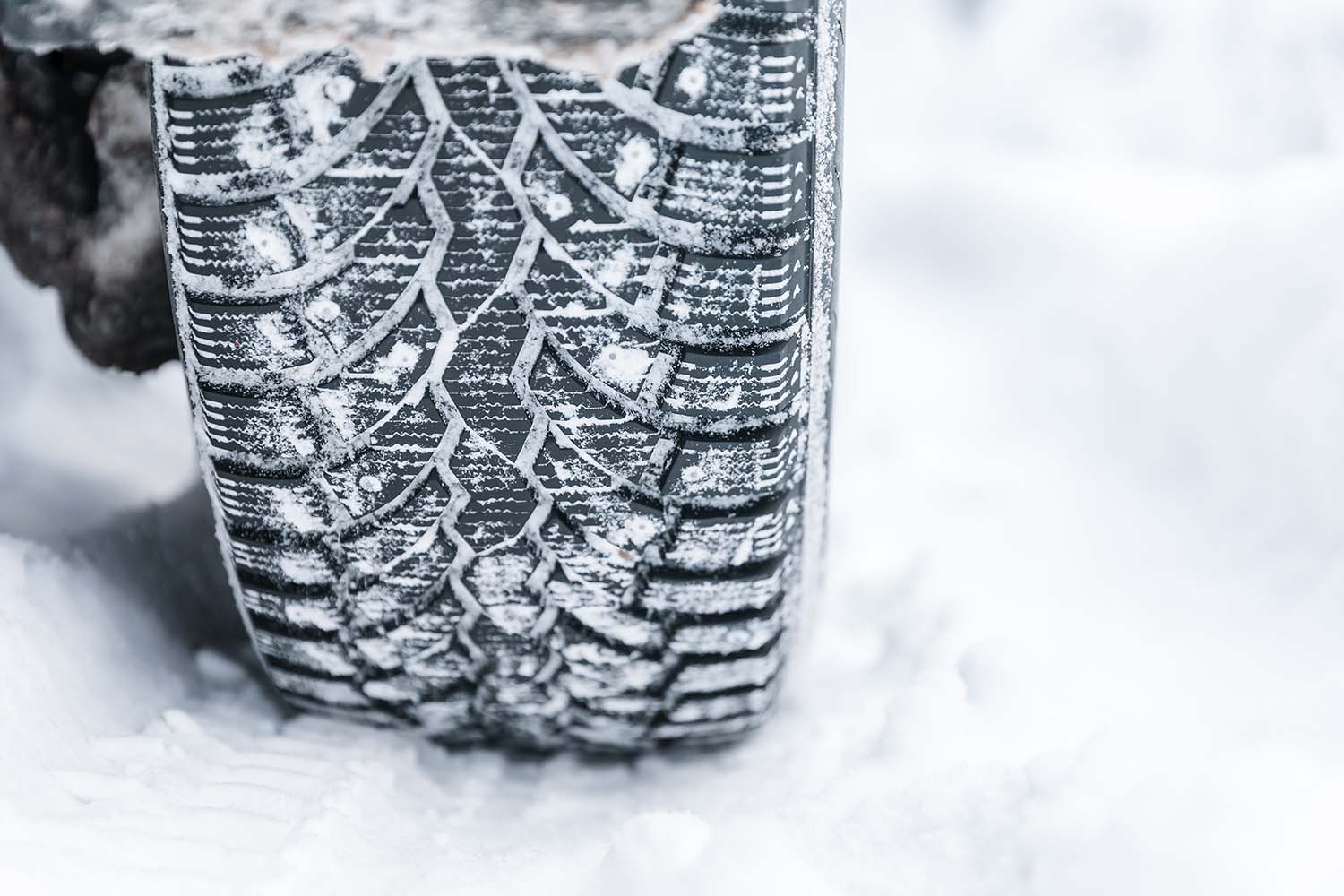
What About Studded Tires or Chains?
There are other options to deal with winter road conditions, and putting studs on your winter tires is one of them. These are tiny little tacks that dig into ice for a better grip. However, they are expensive, time-consuming… and not always all that effective. There are times when they help, but there are plenty of times they don’t. They may be a great idea in some exclusive instances, but most drivers won’t be facing these conditions, and will be just fine using studless tires.
The same goes for tire chains. These are going to be useful to a small portion of the driving population, in a small percentage of instances. But for most of the population, they will be wholly unnecessary. Standard winter tires will work just fine.
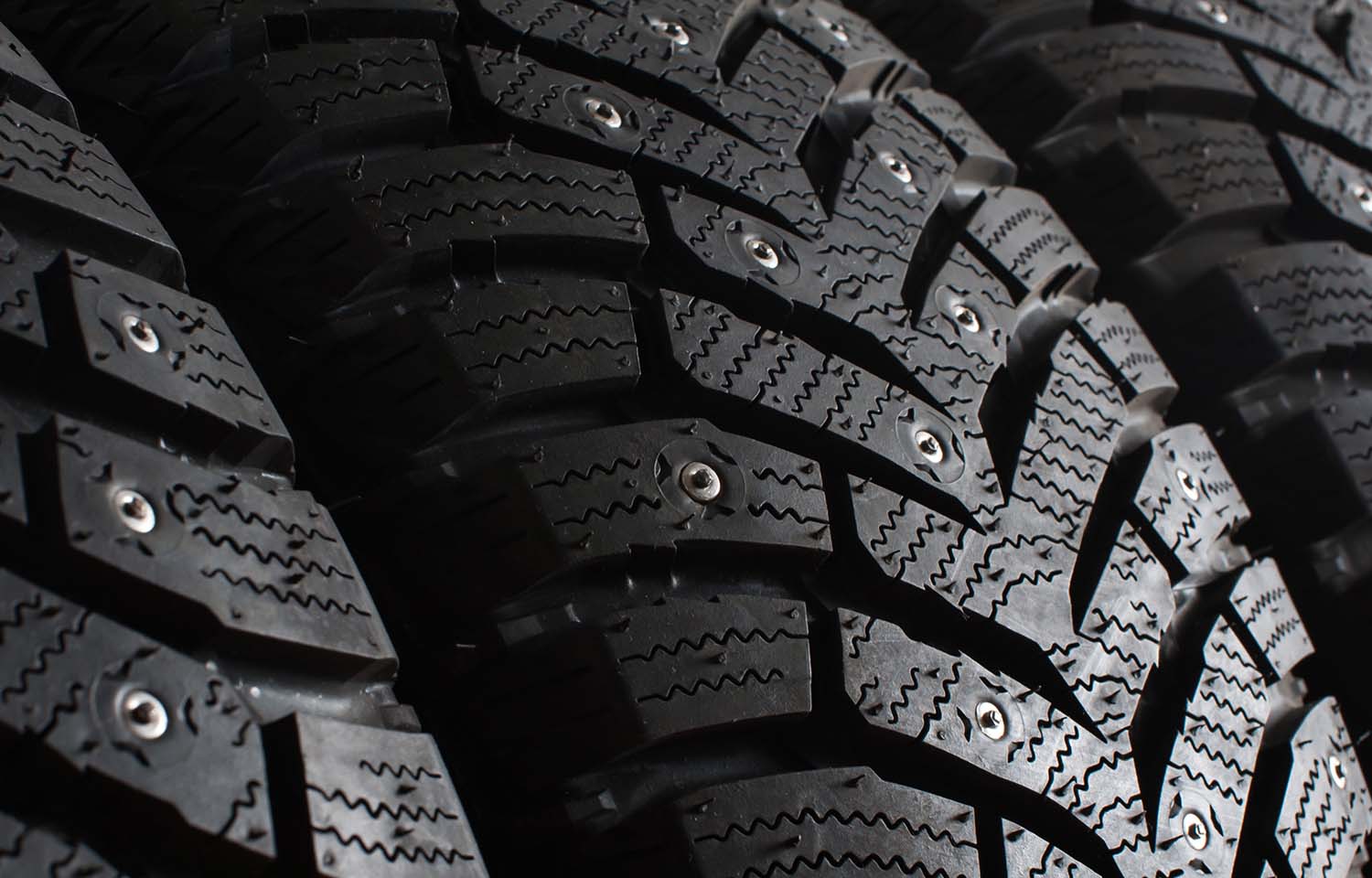
When Should I Put Winter Tires on my Vehicle?
The key part of all those cons is that they nearly exclusively concur on dry, warm, clear roads. If you spend the time to put on your winter tires correctly, you won’t have to worry about these cons. It’s almost better to put winter tires on a little late, than put them on early and have to deal with quicker wear and poor handling while waiting for the first snows to fall. The best time is based on temperature and snowfall.
One of the best options is to have winter tires mounted on a second set of steel or alloy wheels. Then, instead of having to swap the tires onto the wheels seasonally, you can just pull off the old sets and bolt on the new ones, saving hours of effort and avoiding biannual trips to the tire shops.

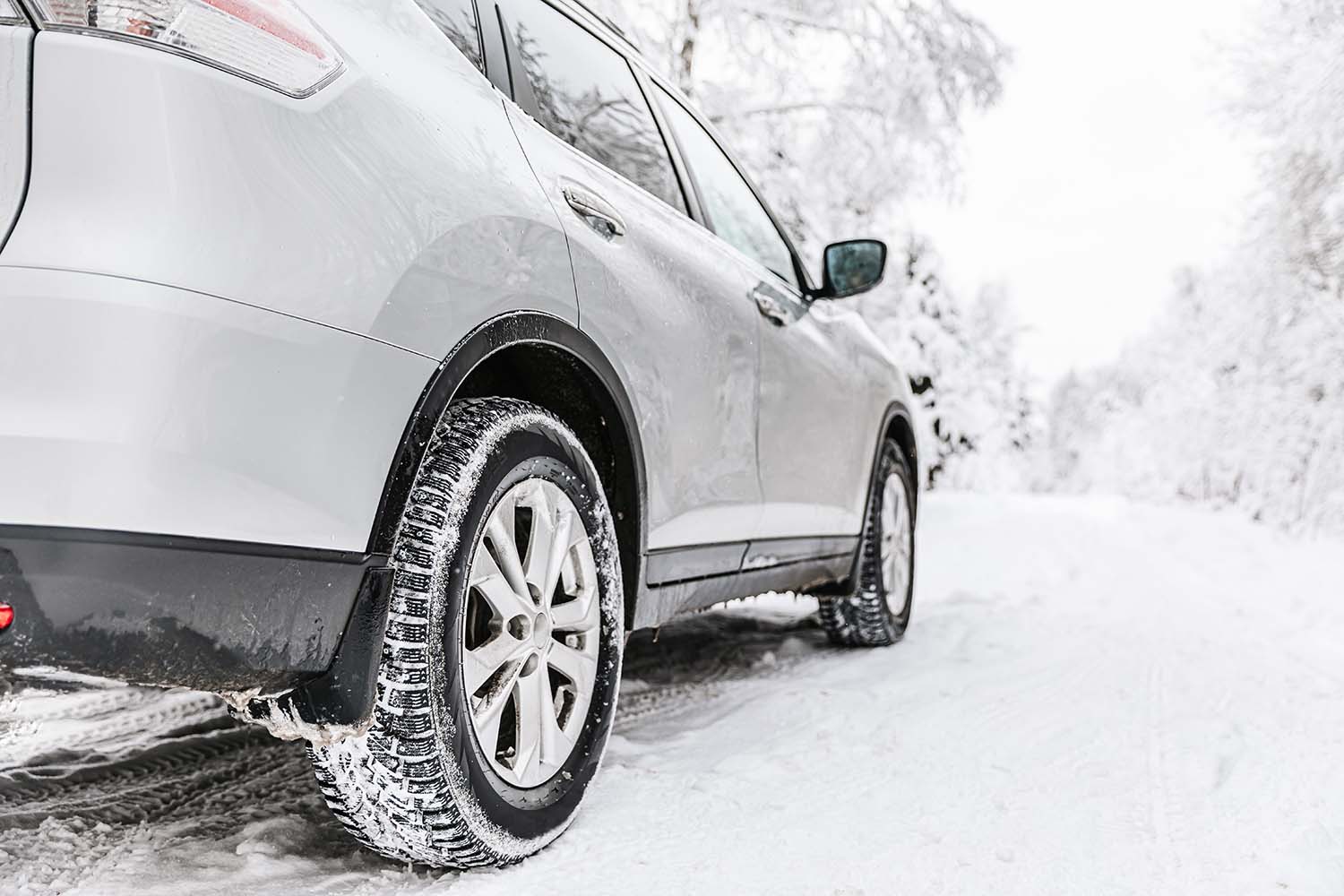
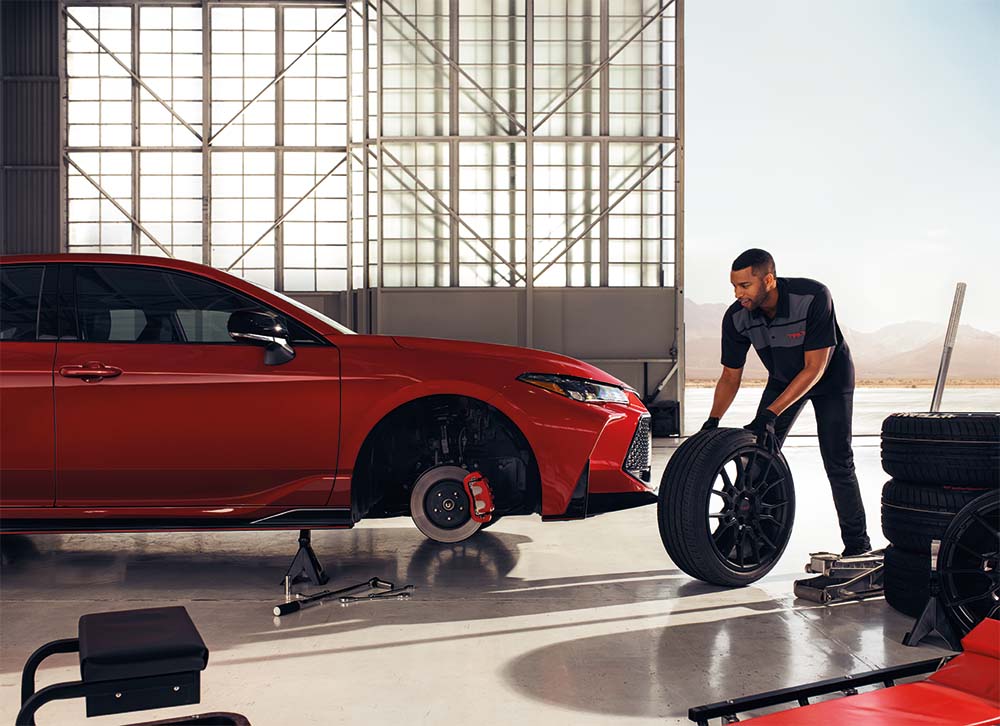
Matching up the right winter tire to your vehicle isn’t that hard either – the experts at Bennett Toyota will have some recommendations for you. We also suggest that you check out one of the handy tools online that will help you fit the right winter tire to your car, truck, or SUV!
Do you have questions about winter tires or need help installing yours? Visit us today at Bennett Toyota in Allentown, PA and we’ll get you ready for the cold and snow!

